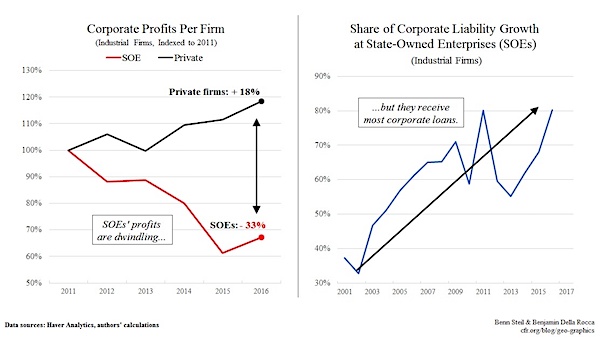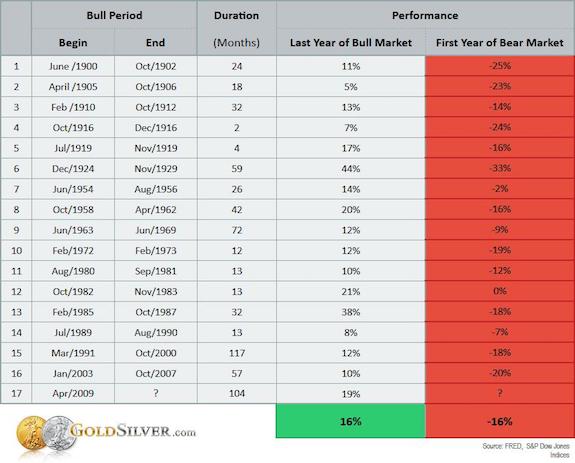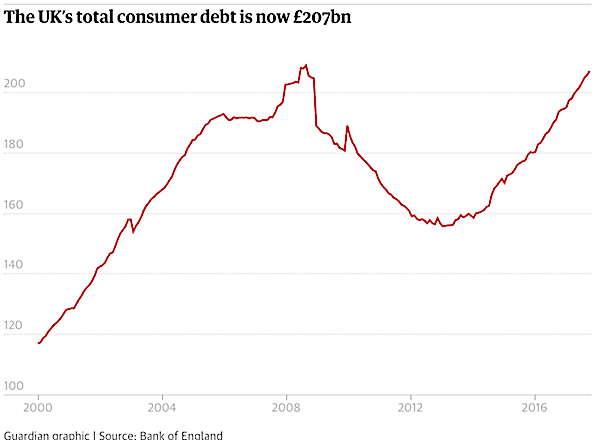
Jean-Francois Millet The flight into Egypt 1864

As I’m writing this, I’m seeing bitcoin being obliterated. Other crypto’s were even worse off earlier. BTC down some 16% today at 5 AM ET, at $11,400. It was over $17,000 10 days ago.
• Crytocurrencies Crashing Fast On South Korea Regulation Plans (Ind.)
Cryptocurrencies across the market are in the middle of a huge crash. All cryptocurrencies are falling amid a major selloff. Most have fallen more than 10% over the morning, and the price of bitcoin has dropped below $12,000. Just days ago, bitcoin was marching towards $20,000. But just today it has fallen more than 10% – taking it down almost 40% over the last month, but still having risen more than 1,300% over the year. Bitcoin is the best performing of the various cryptocurrencies over the morning. Ripple, the third largest cryptocurrency, had dropped by as much as 25% amid major volatility. Ethereum fell by more than 15%.
The price of cryptocurrencies tends to fluctuate wildly, and far more quickly than other more traditional assets and currencies. But the plunge on Tuesday morning is extreme even in that market. The drop came amid increasing suggestions in South Korea that officials might look to impose new regulations on the currency. Finance minister Kim Dong-yeon suggested that the country might ban trading in the currencies entirely, pending a government review. The government has said that the plans are only a suggestion and that more talks are needed. But another government minister said that trading could be banned last week, triggering another instant sell-off, and the plans have already led 200,000 people to petition the government asking to keep bitcoin trading legal.

Little hope left for crypto in China. Korea shaky at best.
• PBOC Official Says China’s Centralized Cryptocurrency Trade Must End (R.)
A senior Chinese central banker says authorities should ban centralized trading of virtual currencies as well as individuals and businesses that provide related services, an internal memo from a government meeting seen by Reuters showed. In the memo outlining details of discussions at a meeting of internet regulators and other policymakers last week, PBOC Vice Governor Pan Gongsheng said the government would continue to apply pressure to the virtual currency trade and prevent the build up of risks in that market. National and local authorities should ban venues that provide centralized trading of virtual currencies, of which bitcoin is the biggest, Pan said. They also need to ban individuals or institutions that provide market-making activities, guarantees, or settlement services for centralized trading of the currencies, such as online “wallet” service providers.
Chinese regulators last year banned initial coin offerings, shut down local cryptocurrency trading exchanges and limited bitcoin mining – but activity in the cryptocurrency and bitcoin space has continued through alternative channels in China despite the crackdown. “The financial work conference clearly called for limiting ‘innovations’ that deviate from the need of the real economy and escape regulation,” Pan said, according to the memo, referring to last week’s meeting. Authorities should also block domestic and foreign websites and close mobile apps that provide centralized virtual currency trading services to Chinese users, and sanction platforms that provide virtual currency payment services, Pan said. He also called for local authorities to investigate services that help people move funds overseas.

It’s a power game.
• China’s Shutdown Of Bitcoin Miners Isn’t Just About Electricity (F.)
China is planning to limit electricity to Bitcoin miners, and government bodies have expressed concern about energy usage. Bitcoin mining is estimated to use up to 4 gigawatts of electricity, equivalent to three nuclear reactors’ production levels. However, this move isn’t just about the electricity. In fact, it is telling that it was China’s central bank that met on the issue of Bitcoin mining, underscoring the fact that the issue is not only, or even primarily, an energy issue. It’s about clamping down on perceived risks of the cryptocurrency, which regulators have associated with malicious acts like fraud and money laundering. Authorities have already cracked down on thousands of criminal cases associated with alternative cryptocurrencies, including Onecoin and Ticcoin. These cryptocurrencies were viewed as Ponzi schemes used to raise illicit funds.
Later, officials shut down cryptocurrency exchanges and banned fundraising through initial coin offerings (ICOs). On Monday, it was reported that Chinese authorities would block cryptocurrency platforms that permit centralized trading. Cracking down on fraud and money laundering alone does not appear to be the way China is addressing risks associated with Bitcoin, however. Authorities are going after the industry more broadly. This may be because China has enough financial risks to regulate at the moment, and it is at capacity, or it could be that officials really do view Bitcoin as insufficiently transparent to represent an appropriate means of exchange or store of value.
Chinese Bitcoin mining companies may be out of luck doing business in a favorable environment. To combat this, some companies have already moved operations overseas. Most recently, Bitmain Technologies set up a subsidiary in Switzerland, which will extend its branches, currently in Amsterdam, Hong Kong, Tel Aviv, Qingdao, Chengdu, Shanghai and Shenzhen. Bitcoin miners have also been attracted to the Canadian province of Québec for its advertised cheap electricity. However, other companies may be forced to shut down. Moving abroad is likely to result in higher energy costs, which can dramatically reduce profit margins gained from mining.

“By some estimates, China’s real growth rate, accounting for bad debt, is roughly half the official one of about 6.9%..”
• China Is Heaping Debt on Its Least Productive Companies (CFR)
When Chinese President Xi Jinping failed to mention the word “deleveraging” in his long-awaited new economic blueprint in December it was clear that the political tug of war between the advocates of “reform” and “growth” had been won by the latter. In the short-run, growth, as defined by changes in GDP, can be increased by more lending and investing. In the longer-term, however, lending and investing can’t boost GDP if it results in bad debt that is properly written down. The big question is how much bad debt China currently has, and how much more it will be producing in the years ahead. By some estimates, China’s real growth rate, accounting for bad debt, is roughly half the official one of about 6.9%. To gauge whether China has been creating good debt—debt that will produce positive returns—or bad, we’ve examined who the beneficiaries of corporate lending are.
As shown in the left-hand figure below, profits at private-sector enterprises rose 18% between 2011 and 2016, while profits at state-owned enterprises (SOEs) plunged by 33%. As shown in the right-hand figure, however, the share of corporate liability growth accounted for by SOEs soared from 59% in 2010 to 80% by 2016. This is the opposite of what one would expect in a market economy. As we highlighted last year, China’s non-performing loans (NPLs) have been growing. Given the evidence that Xi has abandoned any pretense of concern with NPLs, and our evidence that China is shoveling new loans to companies with the least ability to pay them back, we think China is heading towards a debt crisis.


Xi plays a high stakes game.
• Xi Jinping’s Debt Clampdown Has Left a Trail of Dead Projects (BW)
A pile of rusty pipes and materials are all that remain of Lanzhou New Area’s tram project. Only a year ago it was a flagship public-private partnership for the planned city in Central China, before it fell victim to President Xi Jinping’s debt clampdown. “The project is dead,” said a guard at the office, who gave only his surname, Le. Nearby, the tram tracks are paved over, the mismatched lines of asphalt scarring a six-lane road that leads to a dead end on the edge of one of China’s most ambitious urban developments. The size of New York City, the zone is a satellite of Lanzhou, capital of China’s poorest province, Gansu, and a place where Xi’s efforts to wean the country off debt and onto services and consumer spending can be seen in stark relief.
In most of China, the economy is powering through Xi’s borrowing bottleneck, with economists surveyed by Bloomberg projecting the nation’s GDP grew 6.8% last year, the first annual acceleration in seven years. But for less-developed areas like Gansu the story is not so simple. Away from the industrial centers along the coast, Gansu came late to the nation’s debt-fueled investment party. During the nation’s economic ascent in the 1990s and 2000s, it became infamous for having the most polluted air in the country, a cocktail of chemicals from petroleum plants and heavy industry mixed with desert dust storms. Lanzhou New Area was only approved in 2012, just before Xi took office, driven by a central government investment spree designed to spread wealth to western regions.
Now, Xi wants to neutralize the risk of soaring debt derailing growth that accounts for more than a third of the global economic expansion. He reinforced that aim at a twice-a-decade Communist Party Congress in October and at the annual Central Economic Work Conference in December, where elite cadres set goals for 2018. From the yuan and bitcoin to banking and housing, taming potential threats is the new priority. Economists and policy makers see the restraints on borrowing as a necessary step toward choking off some of the nation’s construction and investment excesses and building a more sustainable economy. But there are casualties, including Lanzhou New Area’s tram, a network of tunnels for underground utility lines in the city, and more than 200 other public-private projects — almost half the total in Gansu.

Average last year of bull market: +16%. Average first year of bear market: -16%.
• Here’s What Historically Happens to Stocks When Bull Markets End (GoldSilver)
You undoubtedly know that 2017 was a record-setting year for the broad stock markets. And while gold was up last year despite numerous headwinds, most mainstream investors aren’t paying much attention to gold since they keep seeing so much green in their stock portfolios. Even I was taken back by some of the data from the bull market in stocks… • The Dow hit a record high 71 times last year. On average, a new high was hit more frequently than once a week. • For the first time ever in its almost 90-year history, the S&P 500 rose every month in 2017. And historically there have only been four years with gains in 11 months of the year. • The S&P’s largest pullback in 2017 was 2.8%, the smallest since 1995. • To start 2018, the S&P 500 has risen in each of the five trading sessions, hitting a new record high every day. The last time the index opened the year with at least five straight record highs was 1964.
And as Mike pointed out in his 2018 predictions, the CAPE (Cyclically Adjusted Price-Earnings) ratio has now matched its 1999 level, the second highest reading in over 100 years of data. The CAPE now has a higher reading only in 1929. This all begs the question: is the bull market about to come to an end? This is exactly the kind of frothy behavior a market sees near its apex, so it’s definitely a prudent question to ask. If last year ends up being the top of this bull market, what does history say could happen to stocks this year? We dug up the data for all bull markets in the S&P since the year 1900, and then examined what happened in the very first year after each of those bull markets ended. In other words, what did the first year of the bear market look like after the last full year of the bull market? This could be useful data, if 2017 ends up being the peak of the bull market. Here’s what history shows.
First Year Performance of Bear Market After Bull Market Ends

While the declines for the first year of the bear market varied greatly, you can see that on average, the S&P lost 16% the year immediately following the last year of the bull market. Also notice that in only four cases was the decline measured in single digits—all others were double digit losses. Mike Maloney believes this is the year overvalued stocks begin their descent. If he’s right, the decline could be higher than the historical average, since this is the second longest bull market in history.

The fruits of privatization.
• UK’s Carillion Crisis Deepens Amid Scramble To Save Jobs After Collapse (G.)
Thousands of staff who worked for the collapsed construction firm Carillion inside private sector companies will have their wages stopped on Wednesday unless their jobs are rescued by other firms, the government has said. Experts also said up to 30,000 small firms were owed money by Carillion, which crashed into liquidation on Monday morning, with insolvency practitioners reporting an immediate rush of calls from worried business owners. Ministers gathered for an emergency meeting on Monday night in an effort to limit the damage caused by the collapse of the sprawling construction and support services business. As the fallout spread, the Cabinet Office minister, David Lidington, faced mounting pressure over the government’s oversight of the firm’s increasingly precarious finances in the months leading up to its failure.
Lidington told parliament the government would continue to pay those among Carillion’s 19,500 UK staff who work in public sector jobs, such as NHS cleaners and school catering. But he admitted thousands of Carillion’s private sector workers – who perform jobs ranging from cleaning to catering, security and postroom services for organisations such as the Nationwide building society and BT Openreach – would be cut loose after 48 hours. “The position of private sector employees is that they will not be getting the same protection that we’re offering to public sector employees, beyond a 48-hour period of grace,” Lidington said. He added that this would give time for Carillion’s private clients to decide if they wanted to terminate the contracts or step in to cover wages themselves. “I think that is a reasonable gesture towards private sector employees,” he said, adding that a Jobcentre Plus helpline had been set up.

Only debt leaves the country standing.
• Quarter Of UK’s Poorest Households Are Getting Deeper In Debt (G.)
One in four of Britain’s poorest households are falling behind with debt payments or spending more than a quarter of their monthly income on repayments, according to a study. The latest evidence of mounting debt problems for some of the most vulnerable in society is shown in a report by the Institute for Fiscal Studies, on behalf of the Joseph Rowntree Foundation, at a time when borrowing on credit cards, loans and car finance deals returns to levels unseen since before the 2008 financial crisis. The poorest tenth of households are also more likely to be in net debt, owing more on plastic or on overdrafts and loans than they hold in savings. About a third of the poorest homes are in net debt, compared with only 10% of the highest-income tenth.
For a household of two adults and two children aged between 30 and 44 to be in the poorest tenth, they would have a net annual income of up to £23,200. Young adults are much more likely to be in households in arrears or paying large chunks of their income to banks or credit card providers, the study found. David Sturrock, a research economist at the IFS, said: “Debt looks like a real problem for a significant minority of those on low incomes.” [..] Debt problems for the poorest households can prove persistent, and are of growing concern to the Financial Conduct Authority. Of the poorest fifth of households who were in arrears or spending more than a quarter of their income on debt repayments and charges in 2010, more than 40% were found to be stuck in a similar position two years later.


Tsipras has become the oppressor. Credibility of the entire Greek political system is gone for many years to come. That does not bode well.
• Greek Parliament Votes Through Raft Of Tough Reforms (K.)
As thousands of protesters rallied in Athens and Thessaloniki on Monday, Parliament approved the prior actions included in an all-inclusive bill which the leftist-led coalition government hopes will be the last significant batch of spending cuts and reforms the country has to implement before its bailout program ends in August. The 1,500-page austerity bill, which includes the demands by Greece’s international creditors to expedite auctions of foreclosed properties and changes to labor law that will make it harder for unions to call strikes, was approved by 154 lawmakers in the 300-seat Parliament. Some 141 lawmakers from main opposition New Democracy, Democratic Alignment, Golden Dawn and the Union of Centrists voted against all the provisions included in the bill. Prime Minister Alexis Tsipras told lawmakers that the approval of the multi-bill brings Greece “just one step from the end of the bailout.”
“In the summer, we will… leave behind a tough, unfair and harmful period,” he said, adding that the conclusion of the third review “gives hope to millions of our fellow citizens” but has caused agitation to others, referring to the parties of the opposition. Tsipras rejected claims by the opposition that the new bill will ban the right to strike. “The right to strike is a sacred conquest of the working class. It is not being scrapped and it is not under threat from this government,” he said. For his part, New Democracy leader Kyriakos Mitsotakis denounced Tsipras for “ransoming the country’s future” and damaging its economy. “You are legislating articles that even you don’t agree with,” Mitsotakis said, addressing Tsipras in Parliament, adding that the leftist leader was pushing through measures he was elected to oppose and that he “turned lying into a profession and cynicism into an art.”
Mitsotakis also accused Tsipras and his SYRIZA party of “threatening” investors while they were in the opposition and refuted the government’s narrative that the country is heading for a clean bailout exit in August. The vote in Parliament took place as around a total of 20,000 people in Athens and Thessaloniki marched in protest. Police used pepper spray to disperse rock-throwing protesters outside Parliament. Some demonstrators also sprayed police with red paint. Meanwhile, Monday’s public transport strike – bus, tram, trolley and metro services – in opposition to the bill caused problems for commuters in the Greek capital. The disruption also impacted state-run schools and public hospitals, with teachers and doctors holding work stoppages, while a three-hour walkout by air traffic controllers led to the rescheduling or cancellation of flights.

Obvious suggestion: stop pumping mining sludge into the reef system. Did I just make $1 million? Didn’t think so. Don’t be fooled by this sort of crap.
• Australia Offers Cash For Great Barrier Reef Rescue Ideas (AFP)
Australia is calling on the world’s top scientific minds to help save the Great Barrier Reef, offering hundreds of thousands of dollars to fund research into protecting the world’s largest living structure. The UNESCO World Heritage-listed reef is reeling from significant coral bleaching due to warming sea temperatures linked to climate change. The 2,300-kilometre (1,400-mile) site is also under pressure from farming runoff, development and predatory crown-of-thorns starfish, with experts warning it could be suffering irreparable damage. On Tuesday, the Australian government announced a Aus$2.0 million (US$1.6 million) funding pot available to people with bright ideas on how to save the reef.
“The scale of the problem is big and big thinking is needed, but it’s important to remember that solutions can come from anywhere,” said Environment Minister Josh Frydenberg. He said the money would be available to the world’s “greatest scientific minds, industry and business leaders, innovators and entrepreneurs”. “Solutions could focus on anything from reducing the exposure of corals to physical stressors, to boosting coral regeneration rates by cultivating reef-building coral larvae that attract other important marine species,” Frydenberg added. Up to Aus$250,000 is available for an initial feasibility stage, where researchers can test the technical and commercial viability of their proposals for up to six months.
More than one proposal is expected to be accepted at this stage, the government said. A further Aus$1 million will then be made available to the best solutions at the proof of concept stage, where applicants develop and test their prototypes for up to 12 months. Those that are successful will retain intellectual property rights and will be able to try to commercialise their innovation.

No force suppliers to do the same.
• UK Supermarket Iceland To Eliminate Plastic On All Own-Label Products (G.)
Iceland has become the first major retailer to commit to eliminate plastic packaging for all its own-brand products. The supermarket chain, which specialises in frozen food, said it would go plastic-free within five years to help end the “scourge” of plastic pollution. The current plastic packaging would be replaced with paper and pulp trays and paper bags, which would be recyclable through domestic waste collections or in-store recycling facilities. The supermarket recently carried out a survey in which 80% of 5,000 people polled said they would endorse the move to go plastic-free. Iceland managing director, Richard Walker, said: “The world has woken up to the scourge of plastics. A truckload is entering our oceans every minute, causing untold damage to our marine environment and ultimately humanity – since we all depend on the oceans for our survival.
“The onus is on retailers, as leading contributors to plastic packaging pollution and waste, to take a stand and deliver meaningful change.” He also said Iceland would ensure all packaging was fully recyclable and would be recycled, through support for initiatives such as a bottle deposit return scheme for plastic bottles. As it was technologically and practically possible to create less environmentally harmful alternatives, “there really is no excuse any more for excessive packaging that creates needless waste and damages our environment”, Walker added. Iceland has already removed plastic disposable straws from its own label range and new food ranges in the next few months will use paper-based food trays. The move, which has been welcomed by environmental campaigners, comes amid growing concern over plastic pollution in the world’s oceans, where it can harm and kill wildlife such as turtles and seabirds.









Home › Forums › Debt Rattle January 16 2018